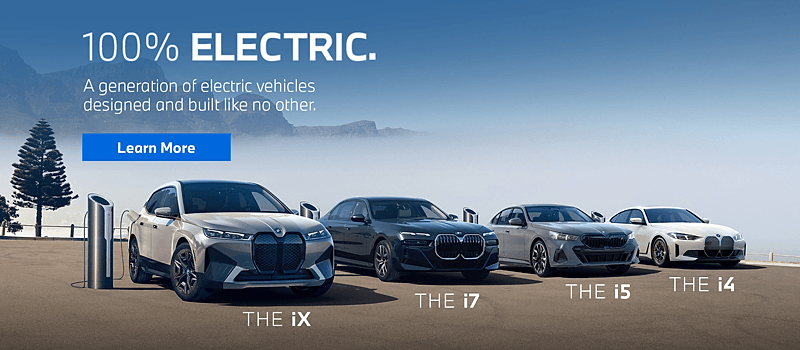As the automotive industry moves toward a greener future, BMW is at the forefront of innovation, offering cutting-edge solutions for sustainable mobility. Two key technologies driving this evolution are electric vehicles (EVs) and hydrogen fuel cell vehicles (FCEVs). But how do these two approaches compare, and which one might be the right fit for you? Let’s dive in.
Electric BMW: The Current Leader in Sustainability
Electric BMWs, such as the BMW i4, BMW iX, and BMW i7, represent the brand’s commitment to all-electric driving. These vehicles rely on rechargeable batteries to power electric motors, offering zero-emission driving and an impressive blend of performance and efficiency.
Advantages of Electric BMWs:
- Wide Availability: BMW has an established lineup of EVs readily available in the market.
- Charging Infrastructure: Public and home charging stations are becoming increasingly widespread and convenient.
- Instant Performance: Electric motors provide instant torque, delivering a smooth and exhilarating driving experience.
- Lower Operating Costs: Electricity is often cheaper than gasoline, and EVs require less maintenance due to fewer moving parts.
Hydrogen Fuel Cell BMW: The Vision of Tomorrow
BMW is also exploring hydrogen fuel cell technology, as seen in the prototype BMW iX5 Hydrogen. These vehicles generate electricity on board by combining hydrogen and oxygen in a fuel cell, producing water as the only byproduct.
Advantages of Hydrogen Fuel Cell BMWs:
- Fast Refueling: Hydrogen fuel cell vehicles can be refueled in just 3-5 minutes, similar to traditional gasoline vehicles.
- Extended Range: Hydrogen tanks can store energy efficiently, offering ranges comparable to or even exceeding EVs.
- Zero Emissions: Like EVs, FCEVs produce no harmful emissions, making them environmentally friendly.
- Reduced Demand on Grid: Hydrogen vehicles don’t rely on electricity from the grid, which could ease pressure as EV adoption grows.
BMW’s Strategy: The Best of Both Worlds
BMW’s approach to sustainable mobility is not to pit EVs against hydrogen fuel cells but to embrace both technologies for different use cases:
- Electric BMWs are ideal for urban environments and personal vehicles, where charging infrastructure is more accessible.
- Hydrogen BMWs are better suited for long-haul transportation, larger vehicles, or areas where refueling speed and range are critical.
By investing in both technologies, BMW ensures it can meet the diverse needs of drivers worldwide while reducing its environmental impact.
Which is Right for You?
Choosing between an electric BMW and a hydrogen BMW ultimately depends on your driving habits, access to infrastructure, and personal preferences. While electric BMWs are widely available today and offer proven performance, hydrogen BMWs represent an exciting future for those seeking quick refueling and long-distance capabilities.
Explore Sustainable BMWs at BMW of Bridgewater
At BMW of Bridgewater, we’re excited to be part of BMW’s journey toward sustainability. Whether you’re ready to go electric or curious about hydrogen fuel cell technology, our team is here to guide you through the options.
Visit us today to test drive a BMW EV like the i4 or learn more about the future of hydrogen-powered driving. The road to sustainable mobility starts here!
BMW of Bridgewater | 655 US 202/206 Bridgewater, NJ 08807 | 908-287-1800
